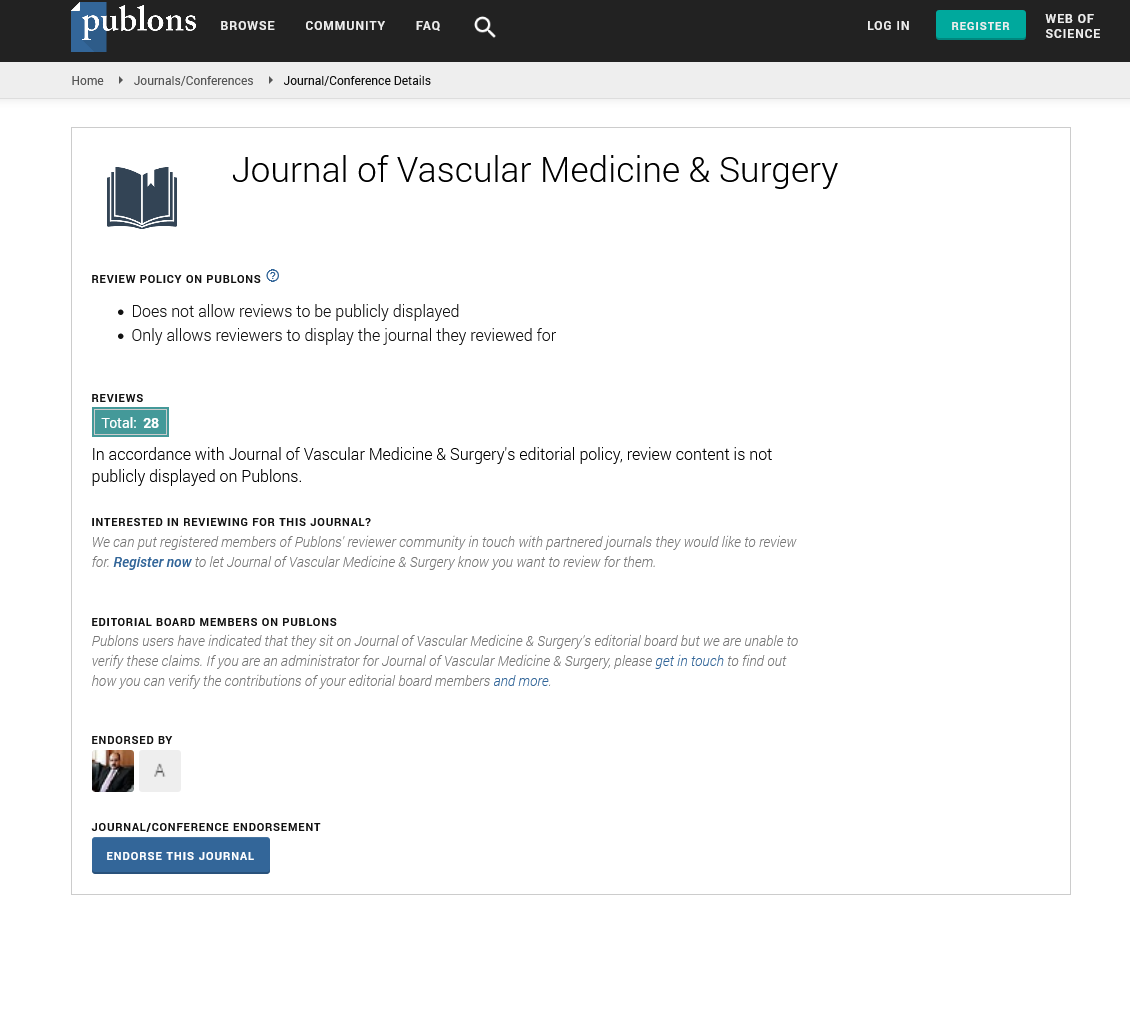Indexed In
- Open J Gate
- Academic Keys
- RefSeek
- Hamdard University
- EBSCO A-Z
- OCLC- WorldCat
- Publons
- Euro Pub
- Google Scholar
- SHERPA ROMEO
Useful Links
Share This Page
Journal Flyer

Open Access Journals
- Agri and Aquaculture
- Biochemistry
- Bioinformatics & Systems Biology
- Business & Management
- Chemistry
- Clinical Sciences
- Engineering
- Food & Nutrition
- General Science
- Genetics & Molecular Biology
- Immunology & Microbiology
- Medical Sciences
- Neuroscience & Psychology
- Nursing & Health Care
- Pharmaceutical Sciences
Abstract
Investigation of the Impact of Flaxseed (Linum Usitatissimum) on the Lower Extremity Ischemia/Reperfusion Injury in a Hypercholesterolemic Rat Model
Melike Elif Teker, Bekir Inan and Oznur Inan
Introduction: Ischemia is a condition in which the circulation fails to provide the oxygen and other metabolites required by the tissue, and to eliminate the waste products. Reperfusion is the recovery of blood flow and oxygen to a hypoxic tissue. The aim of this study is to investigate the effect of flaxseed (L. Usitatissimum) in a hyper cholesterolemic rat model of lower extremity ischemia-reperfusion injury.
Material and method: 38 female Wistar rats weighing 200 to 250 grams were used in the study. The rats were assigned into 4 groups as follows: Group 1 (control, normal diet, n:8); Group 2 (40 mg/kg fed by body lignan complex, n:10), Group 3: (fed by 0.1% cholesterol containing diet, n:10), Group 4 (fed by 0.1% cholesterol containing diet+40 mg/kg body lignan complex, n:10). Ischemia was modeled by performing ligation of the left femoral artery using 6/0 prolene for two hours followed by two hours of perfusion and the blood flow was measured throughout the process in all groups by Doppler ultrasonography.
Results: In Group 3, serum total cholesterol and triglyceride levels were higher compared to subjects in Group 1, Group 2 and Group 4 (p<0.05). The difference was insignificant between groups according to oxidative markers (TAC, TOC) (p>0.05).
Conclusion: The present study shows that flaxseed reduces the ischemia-reperfusion injury that occurs in femoral artery endothelium and gastrocnemius muscle following femoral artery occlusion-reperfusion in rats. The main findings in support of this conclusion include the significantly lower serum total cholesterol, LDL-cholesterol and triglyceride values in rats fed by flaxseed compared to hyper-cholesterolemic rats that were given flaxseed. In addition, assessment of the femoral artery endothelium and gastrocnemius muscle samples using the immunohistochemical method revealed significantly lower edema and neutrophil infiltration in rats fed by flaxseed.

